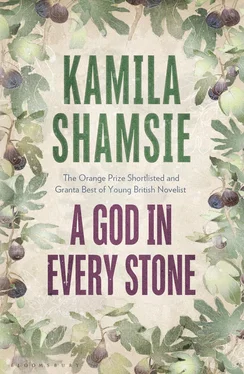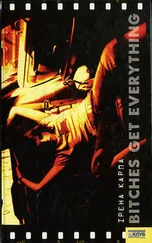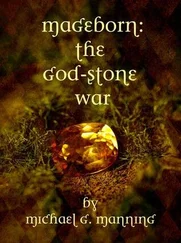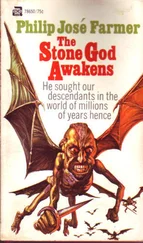He didn’t realise the train had stopped, or that he was sitting with his head in his hands, until he heard the flint strike. The Englishwoman was sitting across from him, a long thin tube in her mouth with a cigarette at its end. She held out a silver case to Qayyum; the cigarettes inside it thinner than any he’d seen before.
— Turkish.
He took it, grateful for anything that would allow him to stay here for a few more minutes, leaving the outside outside.
— How old are you, she asked. Nineteen? Twenty?
— Twenty-one.
— If I may speak to you with the wisdom of twenty-three? Things change very rapidly; this is just the beginning.
She seemed to recognise that the words were meaningless, and when she spoke again her tone was more sober.
— At any rate, you’re home now.
— The emperor Babur said if a blind man walks across India he will know when he reaches Peshawar by the smell of its flowers.
They finished their cigarettes in silence. When he stood up to leave she rose, too, and held out an ungloved hand. He shook it, hoping his expression didn’t reveal his discomfort at her touch, more intimate than the ministrations of the nurses. He wanted to tell her his name but she might think he expected this sympathy between them to continue once they disembarked, and so he hoisted his knapsack onto his shoulders and left without another word.
Viv stepped off the train into the humid afternoon. In the time it had taken to smoke the cigarette all the other passengers had exited the platform, and now the Pathan too was striding away, so there was no one to see her turn in a circle on her heels, arms up in the air to embrace the world in the manner of Tahsin Bey when surrounded by beauty. The mountains, oh everywhere, the mountains! Dark green, almost black, mountains; blue mountains; rose-coloured mountains; and away in the distance, snow-topped mountains. Twenty-five hundred years ago Scylax came through those mountains, and saw the Peshawar Valley — this stretch of earth on which she now stood. The word ‘Ours’ made its way to her lips.
While revolving she had been vaguely aware of a movement on the platform, which now revealed itself to be a Pathan boy, his hair crinkled like the one-eyed man’s and the Greek-influenced early Gandhara Buddhas’, his almond-shaped eyes open wide in bewilderment at the spinning Englishwoman. Viv reached into her pocket and flicked a coin at the boy who caught it deftly.
— Dean’s Hotel?
— Across the road. I can take you there, mem-sahib.
The view from the train had already told her that the railways tracks sliced Peshawar in two, separating the Walled City from the Cantonment. As she followed the boy out of the station it was the Cantonment they entered, with its landscape of wide roads, tree-lined avenues, church spires. Almost an English village, if not for the grand buildings set down in its midst. She pointed to the red structure set just back from the road, with its four rooftop cupolas which simultaneously represented India and the Crown, and felt it some kind of triumph when the boy identified it as the Museum.
— You’ve been inside?
— No. It’s for the English.
— Indians aren’t allowed into the Museum?
— We are allowed. But –
He raised his hands in the air, palms up, expressing the pointlessness of the Museum in his life.
— What’s your tribe?
— My grandfather’s people were Yusufzai.
— I’ve been reading about you. Your ancestors fought Alexander, at Peukelaotis.
— Pew. .?
— You don’t know who Alexander was, do you?
— An Englishman?
She shook her head. What was the cure for amnesiacs without curiosity? The young boy crossed the road, moving with the unhurried, unfaltering steps which marked those who were natives of the sun, and Viv followed. Together they walked up a long driveway with carefully tended gardens on either side which led to the pleasing simplicity of Dean’s Hotel — a whitewashed barracks-like structure which promised tranquillity and tall glasses of iced drinks. It had been recommended by a Mr and Mrs Forbes of Peshawar who Mrs Spencer had found through her cousin the Bishop, recently returned to England after more than twenty years in India. They would be more than happy to welcome Miss Spencer to Peshawar and introduce her to the close-knit British society there, the Forbeses said via telegram, though during the summer most people were in Simla. It had been a relief to discover that the watchful eyes of an aged English couple who had the Bishop’s stamp of approval was all that Mrs Spencer had meant when she promised to find Viv a ‘conventional situation’ in Peshawar. The truth was, the war had sloughed off so many rules that no one seemed to know any more what counted as unacceptable behaviour in women.
Viv turned the pocket of her linen jacket inside out, wriggled her fingers through the hole in the pocket lining and fished out a coin. The boy held up the coin she had already given him, and shook his head sternly at the offer of a second one, as though Viv was in danger of breaching a moral code.
— Do you know how far it is to Shahji-ki-Dheri?
— I can take you. Tomorrow morning, early?
The boy squinted up at the sun as he said it, but Viv suspected the answer actually meant he had no idea where Shahji-ki-Dheri was. Even so, the ground was rocking and her head pounding from the sun’s glare magnified by the train window, and she certainly wasn’t about to head out to a site right away. Yes, she said, and waved goodbye, certain she wouldn’t see him again.
Her rooms were spacious and pleasingly modern, with electric ceiling-fans. She barely had time to notice this before there was a rapid knocking on the bedroom window, drawing her attention to a man in the flower beds holding up something which looked like a bracelet strung with red coral. She touched her wrist, thought of emerald seaweed, before opening the window. The bracelet was a length of string with jewel-like fragments threaded through it, pale burgundy speckled with dark burgundy, the pieces suggesting an entirety the size of a grape. The man — he must be the gardener, there was a basket and pair of shears near his feet — shook the string to make the fragments sway and pressed his thumb and forefinger together at the tips to indicate tiny beaks. Pointing in the direction of the second room, he made a revolving gesture with his finger and shook his head sadly.
Uncomprehending, she allowed herself to be directed into the other room. It didn’t take long to understand what he was telling her — a bird had built its nest in the ceiling fan; the tiny chirping sounds which she had taken for a cricket emanated from it. If she switched on the fan it would be a massacre. The gardener, now standing outside this second room, presented her with the bracelet and placed his hands together in supplication.
She pressed her thumb against one of the speckled fragments which crumbled into fine powder. The gardener looked as if he might cry. Here was a gentler world, where the large tragedies of a military hospital didn’t erode compassion for the tiniest of creatures.
Don’t worry; I’d rather melt in a puddle than harm them, she said, and though they didn’t speak the same language he understood the tone of her voice, and touched his hand to his forehead.
She walked back into the bedroom where the ceiling fan was rotating briskly — after sharing a hostel room with four other nurses, the space between these four walls was more than sufficient. Tying the coral bracelet around her wrist, she was grateful to be allowed this moment of largesse.
Stepping from the cool waters of the bath, she walked directly to the bed, pulling a loose Turkish robe over her head without drying off. Air from the ceiling fan rippled across cotton and wet limbs as she lay down; the curtains were carefully drawn but the window ajar so she could hear water burble from the garden hose into the flower beds just outside. Everything spoke to her of pleasure. She tried to hold herself in that shadow-place between sleep and waking where the mind drifts, excavating — Tahsin Bey was there with her, his thumbs splitting a silver fig in two, purple flesh beneath metallic skin.
Читать дальше












